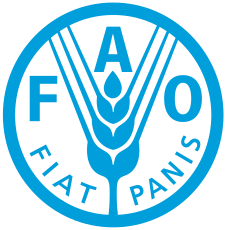

Indice[nascondi]
1 Cos’è la FAO
2 Mandato
3 Il ruolo di “broker” onesto
4 Definizione di norme e standard
5 Pubblicazioni chiave
6 Struttura
7 Budget
8 www.fao.org – Combattere la fame con le informazioni
9 Dipartimenti
10 Voci correlate
11 Collegamenti esterni
Cos’è la FAO [modifica]
L’Organizzazione delle Nazioni Unite per l’alimentazione e l’agricoltura (FAO) è un’agenzia specializzata delle Nazioni Unite con il mandato di aiutare ad accrescere i livelli di nutrizione, aumentare la produttività agricola, migliorare la vita delle popolazioni rurali e contribuire alla crescita economica mondiale. La FAO lavora al servizio dei suoi paesi membri per ridurre la fame cronica e sviluppare in tutto il mondo i settori dell’alimentazione e dell’agricoltura. Fondata il 16 ottobre 1945 a Città del Québec, Québec, Canada, dal 1951 la sua sede è stata trasferita da Washington a Roma. Ne sono membri 189 paesi più la Comunità Europea.
Mandato [modifica]
La FAO fornisce assistenza tecnica ai paesi che chiedono di essere assistiti nello sviluppo del proprio settore rurale e nella formulazione di programmi e politiche per la riduzione della fame. Assiste i paesi anche nella pianificazione economica e nella stesura di bozze di legge e di strategie nazionali di sviluppo rurale. La FAO mobilizza e gestisce fondi stanziati dai paesi industrializzati, da banche per lo sviluppo e da altre fonti garantendo che i progetti raggiungano i loro obiettivi.
Il ruolo di “broker” onesto [modifica]
Una funzione chiave della FAO è fornire un forum neutrale di discussione in cui i paesi si possano incontrare in modo paritario per negoziare accordi internazionali. Questa neutralità è particolarmente importante per quei problemi che travalicano le frontiere nazionali. La FAO ha coordinato la risposta contro le infestazioni e malattie transfrontaliere di piante e animali, per esempio nel caso dell’afta epizootica, dell’emergenza locuste in Africa, della peste bovina e più di recente, nel controllo a livello mondiale dell’epidemia animale di influenza aviaria.
Definizione di norme e standard [modifica]
Un altro aspetto importante delle attività della FAO è la definizione di norme e standard internazionali e di convenzioni. Garantire una gestione che protegga le risorse marine è l’obiettivo del Codice di condotta per la pesca responsabile. Per ridurre gli effetti nocivi dei pesticidi, la FAO ha promosso Convenzione di Rotterdam sulla procedura di consenso informato per i prodotti chimici pericolosi e i pesticidi nel commercio internazionale. La Commissione per il Codex Alimentarius, gestita congiuntamente dalla FAO e dall’OMS, stabilisce le norme per rendere il cibo più sicuro per i consumatori. Il Trattato internazionale sulle risorse fitogenetiche per l’alimentazione e l’agricoltura, recentemente adottato, delinea i principi per garantire che le future generazioni abbiano accesso alle risorse genetiche, e che tutti ne condividano i vantaggi.
Pubblicazioni chiave [modifica]
Periodicamente la FAO pubblica importanti rapporti analitici che forniscono informazioni globali, ed a livello di singolo paese, statistiche e proiezioni sulla situazione mondiale delle foreste, della pesca, dell’agricoltura e della malnutrizione. Questa informazione è disponibile nelle cinque principali della FAO: Lo Stato dell’insicurezza alimentare SOFI; Lo Stato dell’alimentazione e dell’agricoltura SOFA; Lo Stato della pesca e dell’acquacoltura SOFIA; Lo Stato delle foreste SOFO; Lo Stato dei mercati dei prodotti agricoli SOCO.
Struttura [modifica]
Jacques Diouf, Segretario Generale
La FAO è diretta dalla Conferenza plenaria dei paesi membri che si riunisce ogni due anni per analizzare le attività svolte ed approvare il programma di lavoro ed il budget per l’esercizio biennale seguente. La Conferenza elegge il Consiglio, l’organo direttivo, composto da 49 paesi eletti per tre anni a rotazione. La Conferenza elegge anche il direttore generale a capo dell’organizzazione. L’attuale direttore generale, Jacques Diouf, senegalese, è stato eletto nel novembre del 1993, è stato riconfermato nel 1999 e rieletto nel novembre 2005 per un terzo mandato di 6 anni. Alla FAO lavorano oltre 1600 funzionari e 2000 impiegati nei servizi generali. Poco più della metà lavora presso la sede centrale a Roma, gli altri svolgono la loro attività in oltre 100 paesi diversi.
Budget [modifica]
Il budget del Programma Regolare della FAO viene fornito dai paesi membri attraverso contributi stabiliti alla Conferenza biennale. Il budget per il biennio 2006/2007 è stato fissato a 765,7 milioni di dollari, e copre il settore tecnico, la cooperazione e la partnership incluso il Programma di cooperazione tecnica, l'informazione e la politica generale, la direzione e l'amministrazione. Nel 2005-06, i governi membri hanno approvato un’ampia proposta di riforma che prevede tra l’altro un’ulteriore decentralizzazione del personale oltre a misure per raggiungere una maggiore efficienza.
www.fao.org – Combattere la fame con le informazioni [modifica]
La FAO mette a disposizione online una raccolta immensa di dati, informazioni, statistiche, studi e ricerche su argomenti quali sicurezza alimentare, produzione agricola, foreste, pesca, biodiversità, desertificazione, prodotti di base, risorse naturali, alimentazione e molto altro. Il portale http://www.fao.org/waicent/ che permette l’accesso ad oltre 50 database e sistemi informativi della FAO, è visitato in media da oltre 200.000 utenti al giorno, tra essi non solo università ed istituti di ricerca, ma anche camere di commercio, giornalisti, esperti di sviluppo, ed esponenti di governi e mondo politico.
Dipartimenti [modifica]
Agricoltura e Difesa del Consumatore Sviluppo Economico e Sociale Gestione Risorse Naturali ed Ambiente Pesca e Acquacoltura Foreste Cooperazione Tecnica Conoscenza e Comunicazione Risorse Umane, Finanziarie e Fisiche
Uffici regionali in: Thailandia, Ghana, Cile, Egitto. Uffici sub-regionali in: Tunisia, Zimbabwe, Samoa, Barbados, Ungheria. Uffici di collegamento a: Ginevra, Washington D.C., Bruxelles, Yokohama in Giappone. Ha uffici nazionali in più di 79 paesi.
Voci correlate [modifica]
Organizzazione delle Nazioni Unite
Il sistema Nazioni Unite
Collegamenti esterni [modifica]
Template:Lingue Sito della FAO
Sala Stampa
World Food Day
FAO Ragazzi
TeleFood
Nutrire La Mente Combattere La Fame
Estratto da "http://it.wikiversity.org/wiki/FAO"
FAO" redirects here. For other uses, see FAO (disambiguation).
Food and Agriculture Organization of the United Nations[show]
منظمة الأغذية والزراعة للأمم المتحدة (Arabic)联合国粮食及农业组织 (Chinese)Organisation des Nations Unies pour l'alimentation et l'agriculture (French)Продовольственная и сельскохозяйственная организация (Russian)Organización de las Naciones Unidas para la Agricultura y la Alimentación (Spanish)
FAO emblem with its Latin motto, Fiat Panis ("Let there be bread")
Org type
Specialized Agency
Acronyms
FAO
Head
Jacques Diouf
Status
active
Established
16 October 1945 in Rome
Headquarters
Rome, Italy
Website
fao.org
Parent org
ECOSOC
The Food and Agriculture Organization of the United Nations (FAO, or ONUAA for French: Organisation des Nations Unies pour l’alimentation et l’agriculture) is a specialised agency of the United Nations that leads international efforts to defeat hunger. Serving both developed and developing countries, FAO acts as a neutral forum where all nations meet as equals to negotiate agreements and debate policy. FAO is also a source of knowledge and information, and helps developing countries and countries in transition modernise and improve agriculture, forestry and fisheries practices, ensuring good nutrition and food security for all. Its Latin motto, fiat panis, translates into English as "let there be bread". As of 8 August 2008[update], FAO has 191 members states along with the European Union and the Faroe Islands, which are associate members.[1]
Contents[hide]
1 Background
2 Structure and finance
2.1 Budget
2.2 Directors-general
2.3 Deputy directors-general
2.4 Assistant director-general
3 Offices
3.1 World headquarters
3.2 Regional offices
3.3 Subregional offices
3.4 Liaison offices
4 Programmes and achievements
4.1 World Summit on Food Security
4.2 Response to food crisis
4.3 FAO–EU partnership
4.4 Food security programmes
4.5 Emergency response
4.6 Early warning of food emergencies
4.7 Integrated pest management
4.8 Transboundary pests and diseases
4.9 International Plant Protection Convention
4.10 Global Partnership Initiative for Plant Breeding Capacity Building
4.11 Codex Alimentarius
4.12 Statistics
4.13 Investment in agriculture
4.14 TeleFood
4.15 International Alliance Against Hunger
4.16 FAO Goodwill Ambassadors
4.17 Online campaign against hunger
5 Membership
6 Criticism
6.1 1970s, 80s, 90s
6.2 Since 2000
6.3 World food crisis
7 See also
8 References
9 External links
[edit] Background
The notion of establishing an international organization to overlook the agriculture and food situation worldwide arose following the process of codification of international law during late 19th and early 20th century. In May–June 1905 an international conference was held in Rome, which led to the conclusion of an international convention for the creation of an International Agricultural Institute.[2]
The International Agricultural Institute ceased to function during the Second World War, and was officially dissolved by the resolution of its Permanent Committee on February 27, 1948, and its functions were transferred to the newly created Food and Agriculture Organization.[3]
[edit] Structure and finance
FAO was established on 16 October 1945 in Quebec City, Quebec, Canada. In 1951 its headquarters were moved from Washington, D.C., United States, to Rome, Italy. The agency is directed by the Conference of Member Nations, which meets every two years to review the work carried out by the organization and to approve a Programme of Work and Budget for the next two-year period. The Conference elects a council of 49 member states (serve three-year rotating terms) that acts as an interim governing body, and the Director-General, that heads the agency.
FAO is composed of eight departments: Administration and Finance, Agriculture and Consumer Protection, Economic and Social Development, Fisheries and Aquaculture, Forestry, Knowledge and Communication, Natural Resource Management and Technical Cooperation.[4]
Beginning in 1994, FAO underwent the most significant restructuring since its founding, to decentralize operations, streamline procedures and reduce costs. As result, savings of about US$50 million a year were realized.[citation needed]
FAO headquarters in Rome.
[edit] Budget
FAO's Regular Programme budget is funded by its members, through contributions set at the FAO Conference. This budget covers core technical work, cooperation and partnerships including the Technical Cooperation Programme, knowledge exchange, policy and advocacy, direction and administration, governance and security.
The FAO regular budget for 2010 - 2011 biennium is USD 1 million. The voluntary contributions provided by members and other partners support mechanical and emergency (including rehabilitation) assistance to governments for clearly defined purposes linked to the results framework, as well as direct support to FAO's core work. the voluntary contributions are expected to reach approximately USD 1,2 billion in 2010 - 2011.
This overall budget covers core technical work, cooperation and partnerships, leading to Food and Agriculture Outcomes by 71%; Core Functions by 11%; the Country Office Network by 5%; Capital and Security Expenditure by 2%; Administration by 6%; and Technical and Cooperation Program by 5%.
[edit] Directors-general
Jacques Diouf, FAO Director General since 1994.
Sir John Boyd Orr (UK) : October 1945 – April 1948.
Norris E. Dodd (U.S.) : April 1948 – December 1953.
Philip V. Cardon (U.S.) : January 1954 – April 1956.
Sir Herbert Broadley (UK) (acting) : April 1956 – November 1956.
Binay Ranjan Sen (India) : November 1956 – December 1967.
Addeke Hendrik Boerma (Neth.) : January 1968 – December 1975.
Edouard Saouma (Lebanon) : January 1976 – December 1993.
Jacques Diouf (Senegal) : January 1994 – current
[edit] Deputy directors-general
William Nobel Clark (US) : 1948.
Sir Herbert Broadley (UK) : 1948–1958.
Friedrich Traugott Wahlen (Switzerland) : 1958–1959.
Norman C. Wright (UK) : 1959–1963.
Oris V. Wells (US) : 1963–1971.
Roy I. Jackson (US) : 1971–1978.
Ralph W. Phillips (US) : 1978–1981.
Edward M. West (UK) : 1981–1985.
Declan J. Walton (Ireland) : 1986–1987.
Howard Hjort (US) : 1992–1997.
Vikram J. Shah (ad personam) (UK) : 1992–1995.
David A. Harcharik (US) : 1998–2007.
James G. Butler (US) : 2008 – current.
[edit] Assistant director-general
D. Bap Reddy (India) (acting)
[edit] Offices
[edit] World headquarters
The world headquarters are located in Rome, in the former seat of the Department of Italian East Africa. One of the most notable features of the building was the Axum Obelisk which stood in front of the agency seat, although just outside of the territory allocated to FAO by the Italian Government. It was taken from Ethiopia by Benito Mussolini's troops in 1937 as a war chest, and returned on 18 April 2005.
[edit] Regional offices
Regional Office for Africa in Accra, Ghana
Regional Office for Latin America and the Caribbean in Santiago, Chile
Regional Office for Asia and the Pacific in Bangkok, Thailand
Regional Office for the Near East in Cairo, Egypt
Regional Office for Europe in Budapest, Hungary
[edit] Subregional offices
Liaison Office for North America in Washington, D.C.
Subregional Office for Southern and East Africa in Harare, Zimbabwe
Subregional Office for the Pacific Islands in Apia, Samoa
Subregional Office for Central and Eastern Europe in Budapest, Hungary
Subregional Office for the Caribbean in Bridgetown, Barbados
Subregional Office For North Africa in Tunis, Tunisia
Subregional Office For Central Asia in Ankara, Turkey
Sub-regional Office for Western Africa (SFW) located in Accra, Ghana
Sub-regional Office for Eastern Africa (SFE) located in Addis Ababa, Ethiopia
Sub-regional Office for Central Africa (SFC) located in Libreville, Gabon
Sub-regional Office for Central America (SLM) located in Panama City, Panama
[edit] Liaison offices
Liaison Office with the United Nations in Geneva
Liaison Office for North America in Washington D.C.
Liaison Office with the United Nations in New York
Liaison Office with Japan in Yokohama
Liaison Office with the European Union and Belgium in Brussels
[edit] Programmes and achievements
[edit] World Summit on Food Security
The World Summit on Food Security took place in Rome, Italy, between 16 and 18 November 2009. The decision to convene the summit was taken by the FAO Council, at the proposal of FAO Director-General Jacques Diouf. Sixty Heads of State and Government attended the summit. Countries unanimously adopted a declaration pledging renewed commitment to eradicate hunger from the earth at the earliest possible date.[5]
[edit] Response to food crisis
In December 2007, FAO launched its Initiative on Soaring Food Prices to help small producers raise their output and earn more. Under the initiative, FAO contributed to the work of the UN High-Level Task Force on the Global Food Crisis, which produced the Comprehensive Framework for Action. FAO has carried out projects in over 25 countries and inter-agency missions in nearly 60, scaled up its monitoring through the Global Information and Early Warning System on Food and Agriculture, provided policy advice to governments while supporting their efforts to increase food production, and advocated for more investment in agriculture. It has also worked hand-in-hand with the European Union. One example of its work is a US$10.2 million scheme to distribute and multiply quality seeds in Haiti,[6] which has significantly increased food production, thereby providing cheaper food and boosting farmers' incomes.
[edit] FAO–EU partnership
In May 2009, FAO and the European Union signed an initial aid package worth €125 million (US$170 million) to support small farmers in countries hit hard by rising food prices. The aid package falls under the EU’s €1 billion Food Facility, set up with the UN Secretary-General’s High-Level Task Force on the Global Food Crisis and FAO to focus on programmes that will have a quick but lasting impact on food security.[7] FAO is receiving a total of around €200 million for work in 25 countries, of which €15.4 million goes to Zimbabwe.[8]
[edit] Food security programmes
The Special Programme for Food Security is FAO's flagship initiative for reaching the goal of halving the number of hungry in the world by 2015 (currently estimated at close to 1 billion people), as part of its commitment to the Millennium Development Goals. Through projects in over 100 countries worldwide, the programme promotes effective, tangible solutions to the elimination of hunger, undernourishment and poverty. Currently 102 countries are engaged in the programme and of these approximately 30 have begun shifting from pilot to national programmes. To maximize the impact of its work, FAO strongly promotes national ownership and local empowerment in the countries in which it operates.[citation needed]
[edit] Emergency response
FAO helps countries prevent, mitigate, prepare for and respond to emergencies. FAO focuses on strengthening capacity for disaster preparedness and ability to mitigate impact of emergencies on food security, by forecasting and providing early warning of adverse conditions, assessing needs and devising programmes which promote the transition from relief to reconstruction and development, improving analysis of underlying causes of crises, and strengthening local capacities to cope with risks. An example of its work was a recent report outlining poor crop prospects in eastern Africa.[9]
[edit] Early warning of food emergencies
FAO’s Global Information and Early Warning and Information System (GIEWS) monitors world food supply/demand and provides the international community with prompt information on crop prospects and the food security situation[10] on a global, regional and country-by-country basis. In case of impending food emergencies, the system dispatches rapid crop and food supply assessment missions, often jointly with the World Food Programme, and sometimes as a precursor to further intervention and assistance.
[edit] Integrated pest management
During the 1990s, FAO took a leading role in the promotion of integrated pest management for rice production in Asia. Hundreds of thousands of farmers were trained using an approach known as the Farmer Field School (FFS) [17]. Like many of the programmes managed by FAO, the funds for Farmer Field Schools came from bilateral Trust Funds, with Australia, Netherlands, Norway and Switzerland acting as the leading donors. FAO's efforts in this area have drawn praise from NGOs that have otherwise criticized much of the work of the organization.
[edit] Transboundary pests and diseases
FAO established an Emergency Prevention System for Transboundary Animal and Plant Pests and Diseases in 1994, focusing on the control of diseases like rinderpest, foot-and-mouth disease and avian flu by helping governments coordinate their responses. One key element is the Global Rinderpest Eradication Programme, which has advanced to a stage where large tracts of Asia and Africa have now been free of the cattle disease rinderpest for an extended period of time. Meanwhile Locust Watch monitors the worldwide locust situation and keeps affected countries and donors informed of expected developments.[citation needed]
[edit] International Plant Protection Convention
FAO created the International Plant Protection Convention or IPPC in 1952. This international treaty organization works to prevent the international spread of pests and plant diseases. Among its functions are the maintenance of lists of plant pests, tracking of pest outbreaks, and coordination of technical assistance between member nations. As of July 2009, 173 governments had adopted the treaty.
[edit] Global Partnership Initiative for Plant Breeding Capacity Building
The Global Partnership Initiative for Plant Breeding Capacity Building (GIPB) is a global partnership dedicated to increasing plant breeding capacity building.[11] The mission of GIPB is to enhance the capacity of developing countries to improve crops for food security and sustainable development through better plant breeding and delivery systems.[12] The ultimate goal is to ensure that a critical mass of plant breeders, leaders, managers and technicians, donors and partners are linked together through an effective global network. Increasing capacity building for plant breeding in developing countries is critical for the achievement of meaningful results in poverty and hunger reduction and to reverse the current worrisome trends. Plant breeding is a well recognized science capable of widening the genetic and adaptability base of cropping systems, by combining conventional selection techniques and modern technologies. It is essential to face and prevent the recurrence of crises such as that of the soaring food prices and to respond to the increasing demands for crop based sources of energy.
[edit] Codex Alimentarius
FAO and the World Health Organization created the Codex Alimentarius Commission in 1963 to develop food standards, guidelines and texts such as codes of practice under the Joint FAO/WHO Food Standards Programme. The main aims of the programme are protecting consumer health, ensuring fair trade and promoting coordination of all food standards work undertaken by intergovernmental and non-governmental organizations.
[edit] Statistics
The FAO Statistical Division produces FAOSTAT, an on-line multilingual database currently containing over 3 million time-series records from over 210 countries and territories covering statistics on agriculture, nutrition, fisheries, forestry, food aid, land use and population. The Statistical Division also produces data on World Agricultural Trade Flows. Some of this data comes from projects like Africover.
[edit] Investment in agriculture
FAO's technical cooperation department hosts an Investment Centre that promotes greater investment in agriculture and rural development by helping developing countries identify and formulate sustainable agricultural policies, programmes and projects. It mobilizes funding from multilateral institutions such as the World Bank, regional development banks and international funds as well as FAO resources.[citation needed]
[edit] TeleFood
Raising awareness about the problem of hunger mobilizes energy to find a solution. In 1997, FAO launched TeleFood, a campaign of concerts, sporting events and other activities to harness the power of media, celebrities and concerned citizens to help fight hunger. Since its start, the campaign has generated close to US$28 million in donations. Money raised through TeleFood pays for small, sustainable projects that help small-scale farmers produce more food for their families and communities.[citation needed]
The projects provide tangible resources, such as fishing equipment, seeds and agricultural implements. They vary enormously, from helping families raise pigs in Venezuela, through creating school gardens in Cape Verde and Mauritania or providing school lunches in Uganda and teaching children to grow food, to raising fish in a leper community in India.
[edit] International Alliance Against Hunger
In June 2002, during the World Food Summit, world leaders reviewed progress made towards meeting the 1996 Summit goal of halving the number of the world's hungry by 2015; their final declaration called for the creation of an International Alliance against Hunger (IAAH) to join forces in efforts to eradicate hunger. Launched on World Food Day, 16 October 2003, the IAAH works to generate political will and concrete actions through partnerships between intergovernmental and non-governmental organisations and national alliances.
The IAAH is a voluntary association of international organisations, national alliances against hunger, civil society organisations, social and religious organisations and the private sector.
The global activities of the IAAH focus on four major themes: advocacy, accountability, resource mobilization and coordination. The International Alliance is made up of the Rome-based UN food organisations – FAO, the International Fund for Agricultural Development (IFAD) and the World Food Programme (WFP) – and representatives of other intergovernmental and non-governmental organisations. Individuals cannot directly join the IAAH, though they can work with national alliances against hunger. In less than two years, 36 countries have established national alliances, some of them already very active like those in Brazil, Burkina Faso, France, India and the United States.
[edit] FAO Goodwill Ambassadors
The FAO Goodwill Ambassadors Programme was initiated in 1999. The main purpose of the programme is to attract public and media attention to the unacceptable situation that some 1 billion people continue to suffer from chronic hunger and malnutrition in a time of unprecedented plenty. These people lead a life of misery and are denied the most basic of human rights: the right to food. Governments alone cannot end hunger and undernourishment. Mobilization of the public and private sectors, the involvement of civil society and the pooling of collective and individual resources are all needed if people are to break out of the vicious circle of chronic hunger and undernourishment. Each of FAO’s Goodwill Ambassadors – celebrities from the arts, entertainment, sport and academia such as Nobel Prize winner Rita Levi Montalcini, actress Gong Li, the late singer Miriam Makeba, and soccer players Roberto Baggio and Raúl, to name a few – has made a personal and professional commitment to FAO’s vision: a food-secure world for present and future generations. Using their talents and influence, the Goodwill Ambassadors draw the old and the young, the rich and the poor into the campaign against world hunger. They aim to make Food for All a reality in the 21st century and beyond.[citation needed]
[edit] Online campaign against hunger
On 11 May 2010, FAO launched a worldwide communication and media campaign entitled "The 1billionhungry project", which encourages people "to get angry at the fact that around a billion people suffer from hunger". The FAO campaign borrows as its slogan the line "I'm as mad as hell, and I'm not going to take this anymore!", used by Peter Finch in the 1976 film, Network. The campaign asks people to sign an online petition that calls upon governments to make the elimination of hunger their top priority. Also, after signing the petition, each person is given a ‘’secret code’’ that will be used to distribute the link to the petition among social networks. FAO said it hoped the petition will spread through social media sites such as Facebook, Twitter and YouTube.[13]
The campaign was launched at the FAO headquarters in Rome and also in cities like Stockholm, Yokohama, New-York and Paris. The results of the petition will be presented to the representatives of each state that will be attending the World Food Day in New York at the UN Headquarters by the end of October 2010, It was possessing the participation of the representatives of the FAO of the Field units of Central America Mr. Deodoro Roca, Africa and Eurota Ms. Maria Helena M Q Somedo, Asia and the Pacific Ocean Mr. Fernando Guerrieri Cercano Oriente Mr. Al-Otaibi Saad Aeid and the recent Subregion North of Latin America Mr. Francisco Costa Esparza[14]
The main idea of the project is that the FAO wants to increase the public awareness regarding the existence of chronic hunger in the world, which affects at least 1 billion people. The FAO also wants to educate people about the problems of hunger, and reinforce its role as the number one organization that operates with sustainable development concerning food security. The creative concept has been gracefully provided by the McCann Erickson Italy Communication Agency.
The symbol of the campaign is a yellow whistle, which acts as a metaphor to ‘’sound the alarm’’ of the existence of chronic hunger. On the 1billionhungry.org website, there is a counter that indicates how many people already signed the petition. Signatures can either be numeric (via the website or social media) or physical, by using signatures sheets (available on the 1BH website).
This communication campaign has many differences compared to a classic one. First, it relies on the assistance of organizations and institutions that can facilitate the spreading of the project, by placing banners on their websites or organizing events aimed to raise awareness about the project. Second, the 1 Billion Hungry project is a viral communication campaign, that is to say the people who signed the petition can spread the link of the 1billionhungry website to their friends, via social media or mail, in order to gain awareness and signatures for the project.
Moreover, each and every person can decide to organize an event about the project, simply by gathering friends, whistles, t-shirts and banners (whistles and t-shirts can be ordered on the 1 billionhungry.org website and graphic material is available on an FTP server hosted by the FAO) and thereby alert people about chronic hunger by using the yellow whistle. Signatures can be gathered in such events, by getting the signature sheet on the 1BH FTP.
Beyond the goal of getting massive people awareness about chronic hunger, the main goal of the petition is to get 1 million signatures. This scope is to put pressure on the participating states to work together and assist FAO in its struggle against chronic hunger in the world.
Food and Agriculture Organization of the United Nations[show]
منظمة الأغذية والزراعة للأمم المتحدة (Arabic)联合国粮食及农业组织 (Chinese)Organisation des Nations Unies pour l'alimentation et l'agriculture (French)Продовольственная и сельскохозяйственная организация (Russian)Organización de las Naciones Unidas para la Agricultura y la Alimentación (Spanish)
FAO emblem with its Latin motto, Fiat Panis ("Let there be bread")
Org type
Specialized Agency
Acronyms
FAO
Head
Jacques Diouf
Status
active
Established
16 October 1945 in Rome
Headquarters
Rome, Italy
Website
fao.org
Parent org
ECOSOC
The Food and Agriculture Organization of the United Nations (FAO, or ONUAA for French: Organisation des Nations Unies pour l’alimentation et l’agriculture) is a specialised agency of the United Nations that leads international efforts to defeat hunger. Serving both developed and developing countries, FAO acts as a neutral forum where all nations meet as equals to negotiate agreements and debate policy. FAO is also a source of knowledge and information, and helps developing countries and countries in transition modernise and improve agriculture, forestry and fisheries practices, ensuring good nutrition and food security for all. Its Latin motto, fiat panis, translates into English as "let there be bread". As of 8 August 2008[update], FAO has 191 members states along with the European Union and the Faroe Islands, which are associate members.[1]
Contents[hide]
1 Background
2 Structure and finance
2.1 Budget
2.2 Directors-general
2.3 Deputy directors-general
2.4 Assistant director-general
3 Offices
3.1 World headquarters
3.2 Regional offices
3.3 Subregional offices
3.4 Liaison offices
4 Programmes and achievements
4.1 World Summit on Food Security
4.2 Response to food crisis
4.3 FAO–EU partnership
4.4 Food security programmes
4.5 Emergency response
4.6 Early warning of food emergencies
4.7 Integrated pest management
4.8 Transboundary pests and diseases
4.9 International Plant Protection Convention
4.10 Global Partnership Initiative for Plant Breeding Capacity Building
4.11 Codex Alimentarius
4.12 Statistics
4.13 Investment in agriculture
4.14 TeleFood
4.15 International Alliance Against Hunger
4.16 FAO Goodwill Ambassadors
4.17 Online campaign against hunger
5 Membership
6 Criticism
6.1 1970s, 80s, 90s
6.2 Since 2000
6.3 World food crisis
7 See also
8 References
9 External links
[edit] Background
The notion of establishing an international organization to overlook the agriculture and food situation worldwide arose following the process of codification of international law during late 19th and early 20th century. In May–June 1905 an international conference was held in Rome, which led to the conclusion of an international convention for the creation of an International Agricultural Institute.[2]
The International Agricultural Institute ceased to function during the Second World War, and was officially dissolved by the resolution of its Permanent Committee on February 27, 1948, and its functions were transferred to the newly created Food and Agriculture Organization.[3]
[edit] Structure and finance
FAO was established on 16 October 1945 in Quebec City, Quebec, Canada. In 1951 its headquarters were moved from Washington, D.C., United States, to Rome, Italy. The agency is directed by the Conference of Member Nations, which meets every two years to review the work carried out by the organization and to approve a Programme of Work and Budget for the next two-year period. The Conference elects a council of 49 member states (serve three-year rotating terms) that acts as an interim governing body, and the Director-General, that heads the agency.
FAO is composed of eight departments: Administration and Finance, Agriculture and Consumer Protection, Economic and Social Development, Fisheries and Aquaculture, Forestry, Knowledge and Communication, Natural Resource Management and Technical Cooperation.[4]
Beginning in 1994, FAO underwent the most significant restructuring since its founding, to decentralize operations, streamline procedures and reduce costs. As result, savings of about US$50 million a year were realized.[citation needed]
FAO headquarters in Rome.
[edit] Budget
FAO's Regular Programme budget is funded by its members, through contributions set at the FAO Conference. This budget covers core technical work, cooperation and partnerships including the Technical Cooperation Programme, knowledge exchange, policy and advocacy, direction and administration, governance and security.
The FAO regular budget for 2010 - 2011 biennium is USD 1 million. The voluntary contributions provided by members and other partners support mechanical and emergency (including rehabilitation) assistance to governments for clearly defined purposes linked to the results framework, as well as direct support to FAO's core work. the voluntary contributions are expected to reach approximately USD 1,2 billion in 2010 - 2011.
This overall budget covers core technical work, cooperation and partnerships, leading to Food and Agriculture Outcomes by 71%; Core Functions by 11%; the Country Office Network by 5%; Capital and Security Expenditure by 2%; Administration by 6%; and Technical and Cooperation Program by 5%.
[edit] Directors-general
Jacques Diouf, FAO Director General since 1994.
Sir John Boyd Orr (UK) : October 1945 – April 1948.
Norris E. Dodd (U.S.) : April 1948 – December 1953.
Philip V. Cardon (U.S.) : January 1954 – April 1956.
Sir Herbert Broadley (UK) (acting) : April 1956 – November 1956.
Binay Ranjan Sen (India) : November 1956 – December 1967.
Addeke Hendrik Boerma (Neth.) : January 1968 – December 1975.
Edouard Saouma (Lebanon) : January 1976 – December 1993.
Jacques Diouf (Senegal) : January 1994 – current
[edit] Deputy directors-general
William Nobel Clark (US) : 1948.
Sir Herbert Broadley (UK) : 1948–1958.
Friedrich Traugott Wahlen (Switzerland) : 1958–1959.
Norman C. Wright (UK) : 1959–1963.
Oris V. Wells (US) : 1963–1971.
Roy I. Jackson (US) : 1971–1978.
Ralph W. Phillips (US) : 1978–1981.
Edward M. West (UK) : 1981–1985.
Declan J. Walton (Ireland) : 1986–1987.
Howard Hjort (US) : 1992–1997.
Vikram J. Shah (ad personam) (UK) : 1992–1995.
David A. Harcharik (US) : 1998–2007.
James G. Butler (US) : 2008 – current.
[edit] Assistant director-general
D. Bap Reddy (India) (acting)
[edit] Offices
[edit] World headquarters
The world headquarters are located in Rome, in the former seat of the Department of Italian East Africa. One of the most notable features of the building was the Axum Obelisk which stood in front of the agency seat, although just outside of the territory allocated to FAO by the Italian Government. It was taken from Ethiopia by Benito Mussolini's troops in 1937 as a war chest, and returned on 18 April 2005.
[edit] Regional offices
Regional Office for Africa in Accra, Ghana
Regional Office for Latin America and the Caribbean in Santiago, Chile
Regional Office for Asia and the Pacific in Bangkok, Thailand
Regional Office for the Near East in Cairo, Egypt
Regional Office for Europe in Budapest, Hungary
[edit] Subregional offices
Liaison Office for North America in Washington, D.C.
Subregional Office for Southern and East Africa in Harare, Zimbabwe
Subregional Office for the Pacific Islands in Apia, Samoa
Subregional Office for Central and Eastern Europe in Budapest, Hungary
Subregional Office for the Caribbean in Bridgetown, Barbados
Subregional Office For North Africa in Tunis, Tunisia
Subregional Office For Central Asia in Ankara, Turkey
Sub-regional Office for Western Africa (SFW) located in Accra, Ghana
Sub-regional Office for Eastern Africa (SFE) located in Addis Ababa, Ethiopia
Sub-regional Office for Central Africa (SFC) located in Libreville, Gabon
Sub-regional Office for Central America (SLM) located in Panama City, Panama
[edit] Liaison offices
Liaison Office with the United Nations in Geneva
Liaison Office for North America in Washington D.C.
Liaison Office with the United Nations in New York
Liaison Office with Japan in Yokohama
Liaison Office with the European Union and Belgium in Brussels
[edit] Programmes and achievements
[edit] World Summit on Food Security
The World Summit on Food Security took place in Rome, Italy, between 16 and 18 November 2009. The decision to convene the summit was taken by the FAO Council, at the proposal of FAO Director-General Jacques Diouf. Sixty Heads of State and Government attended the summit. Countries unanimously adopted a declaration pledging renewed commitment to eradicate hunger from the earth at the earliest possible date.[5]
[edit] Response to food crisis
In December 2007, FAO launched its Initiative on Soaring Food Prices to help small producers raise their output and earn more. Under the initiative, FAO contributed to the work of the UN High-Level Task Force on the Global Food Crisis, which produced the Comprehensive Framework for Action. FAO has carried out projects in over 25 countries and inter-agency missions in nearly 60, scaled up its monitoring through the Global Information and Early Warning System on Food and Agriculture, provided policy advice to governments while supporting their efforts to increase food production, and advocated for more investment in agriculture. It has also worked hand-in-hand with the European Union. One example of its work is a US$10.2 million scheme to distribute and multiply quality seeds in Haiti,[6] which has significantly increased food production, thereby providing cheaper food and boosting farmers' incomes.
[edit] FAO–EU partnership
In May 2009, FAO and the European Union signed an initial aid package worth €125 million (US$170 million) to support small farmers in countries hit hard by rising food prices. The aid package falls under the EU’s €1 billion Food Facility, set up with the UN Secretary-General’s High-Level Task Force on the Global Food Crisis and FAO to focus on programmes that will have a quick but lasting impact on food security.[7] FAO is receiving a total of around €200 million for work in 25 countries, of which €15.4 million goes to Zimbabwe.[8]
[edit] Food security programmes
The Special Programme for Food Security is FAO's flagship initiative for reaching the goal of halving the number of hungry in the world by 2015 (currently estimated at close to 1 billion people), as part of its commitment to the Millennium Development Goals. Through projects in over 100 countries worldwide, the programme promotes effective, tangible solutions to the elimination of hunger, undernourishment and poverty. Currently 102 countries are engaged in the programme and of these approximately 30 have begun shifting from pilot to national programmes. To maximize the impact of its work, FAO strongly promotes national ownership and local empowerment in the countries in which it operates.[citation needed]
[edit] Emergency response
FAO helps countries prevent, mitigate, prepare for and respond to emergencies. FAO focuses on strengthening capacity for disaster preparedness and ability to mitigate impact of emergencies on food security, by forecasting and providing early warning of adverse conditions, assessing needs and devising programmes which promote the transition from relief to reconstruction and development, improving analysis of underlying causes of crises, and strengthening local capacities to cope with risks. An example of its work was a recent report outlining poor crop prospects in eastern Africa.[9]
[edit] Early warning of food emergencies
FAO’s Global Information and Early Warning and Information System (GIEWS) monitors world food supply/demand and provides the international community with prompt information on crop prospects and the food security situation[10] on a global, regional and country-by-country basis. In case of impending food emergencies, the system dispatches rapid crop and food supply assessment missions, often jointly with the World Food Programme, and sometimes as a precursor to further intervention and assistance.
[edit] Integrated pest management
During the 1990s, FAO took a leading role in the promotion of integrated pest management for rice production in Asia. Hundreds of thousands of farmers were trained using an approach known as the Farmer Field School (FFS) [17]. Like many of the programmes managed by FAO, the funds for Farmer Field Schools came from bilateral Trust Funds, with Australia, Netherlands, Norway and Switzerland acting as the leading donors. FAO's efforts in this area have drawn praise from NGOs that have otherwise criticized much of the work of the organization.
[edit] Transboundary pests and diseases
FAO established an Emergency Prevention System for Transboundary Animal and Plant Pests and Diseases in 1994, focusing on the control of diseases like rinderpest, foot-and-mouth disease and avian flu by helping governments coordinate their responses. One key element is the Global Rinderpest Eradication Programme, which has advanced to a stage where large tracts of Asia and Africa have now been free of the cattle disease rinderpest for an extended period of time. Meanwhile Locust Watch monitors the worldwide locust situation and keeps affected countries and donors informed of expected developments.[citation needed]
[edit] International Plant Protection Convention
FAO created the International Plant Protection Convention or IPPC in 1952. This international treaty organization works to prevent the international spread of pests and plant diseases. Among its functions are the maintenance of lists of plant pests, tracking of pest outbreaks, and coordination of technical assistance between member nations. As of July 2009, 173 governments had adopted the treaty.
[edit] Global Partnership Initiative for Plant Breeding Capacity Building
The Global Partnership Initiative for Plant Breeding Capacity Building (GIPB) is a global partnership dedicated to increasing plant breeding capacity building.[11] The mission of GIPB is to enhance the capacity of developing countries to improve crops for food security and sustainable development through better plant breeding and delivery systems.[12] The ultimate goal is to ensure that a critical mass of plant breeders, leaders, managers and technicians, donors and partners are linked together through an effective global network. Increasing capacity building for plant breeding in developing countries is critical for the achievement of meaningful results in poverty and hunger reduction and to reverse the current worrisome trends. Plant breeding is a well recognized science capable of widening the genetic and adaptability base of cropping systems, by combining conventional selection techniques and modern technologies. It is essential to face and prevent the recurrence of crises such as that of the soaring food prices and to respond to the increasing demands for crop based sources of energy.
[edit] Codex Alimentarius
FAO and the World Health Organization created the Codex Alimentarius Commission in 1963 to develop food standards, guidelines and texts such as codes of practice under the Joint FAO/WHO Food Standards Programme. The main aims of the programme are protecting consumer health, ensuring fair trade and promoting coordination of all food standards work undertaken by intergovernmental and non-governmental organizations.
[edit] Statistics
The FAO Statistical Division produces FAOSTAT, an on-line multilingual database currently containing over 3 million time-series records from over 210 countries and territories covering statistics on agriculture, nutrition, fisheries, forestry, food aid, land use and population. The Statistical Division also produces data on World Agricultural Trade Flows. Some of this data comes from projects like Africover.
[edit] Investment in agriculture
FAO's technical cooperation department hosts an Investment Centre that promotes greater investment in agriculture and rural development by helping developing countries identify and formulate sustainable agricultural policies, programmes and projects. It mobilizes funding from multilateral institutions such as the World Bank, regional development banks and international funds as well as FAO resources.[citation needed]
[edit] TeleFood
Raising awareness about the problem of hunger mobilizes energy to find a solution. In 1997, FAO launched TeleFood, a campaign of concerts, sporting events and other activities to harness the power of media, celebrities and concerned citizens to help fight hunger. Since its start, the campaign has generated close to US$28 million in donations. Money raised through TeleFood pays for small, sustainable projects that help small-scale farmers produce more food for their families and communities.[citation needed]
The projects provide tangible resources, such as fishing equipment, seeds and agricultural implements. They vary enormously, from helping families raise pigs in Venezuela, through creating school gardens in Cape Verde and Mauritania or providing school lunches in Uganda and teaching children to grow food, to raising fish in a leper community in India.
[edit] International Alliance Against Hunger
In June 2002, during the World Food Summit, world leaders reviewed progress made towards meeting the 1996 Summit goal of halving the number of the world's hungry by 2015; their final declaration called for the creation of an International Alliance against Hunger (IAAH) to join forces in efforts to eradicate hunger. Launched on World Food Day, 16 October 2003, the IAAH works to generate political will and concrete actions through partnerships between intergovernmental and non-governmental organisations and national alliances.
The IAAH is a voluntary association of international organisations, national alliances against hunger, civil society organisations, social and religious organisations and the private sector.
The global activities of the IAAH focus on four major themes: advocacy, accountability, resource mobilization and coordination. The International Alliance is made up of the Rome-based UN food organisations – FAO, the International Fund for Agricultural Development (IFAD) and the World Food Programme (WFP) – and representatives of other intergovernmental and non-governmental organisations. Individuals cannot directly join the IAAH, though they can work with national alliances against hunger. In less than two years, 36 countries have established national alliances, some of them already very active like those in Brazil, Burkina Faso, France, India and the United States.
[edit] FAO Goodwill Ambassadors
The FAO Goodwill Ambassadors Programme was initiated in 1999. The main purpose of the programme is to attract public and media attention to the unacceptable situation that some 1 billion people continue to suffer from chronic hunger and malnutrition in a time of unprecedented plenty. These people lead a life of misery and are denied the most basic of human rights: the right to food. Governments alone cannot end hunger and undernourishment. Mobilization of the public and private sectors, the involvement of civil society and the pooling of collective and individual resources are all needed if people are to break out of the vicious circle of chronic hunger and undernourishment. Each of FAO’s Goodwill Ambassadors – celebrities from the arts, entertainment, sport and academia such as Nobel Prize winner Rita Levi Montalcini, actress Gong Li, the late singer Miriam Makeba, and soccer players Roberto Baggio and Raúl, to name a few – has made a personal and professional commitment to FAO’s vision: a food-secure world for present and future generations. Using their talents and influence, the Goodwill Ambassadors draw the old and the young, the rich and the poor into the campaign against world hunger. They aim to make Food for All a reality in the 21st century and beyond.[citation needed]
[edit] Online campaign against hunger
On 11 May 2010, FAO launched a worldwide communication and media campaign entitled "The 1billionhungry project", which encourages people "to get angry at the fact that around a billion people suffer from hunger". The FAO campaign borrows as its slogan the line "I'm as mad as hell, and I'm not going to take this anymore!", used by Peter Finch in the 1976 film, Network. The campaign asks people to sign an online petition that calls upon governments to make the elimination of hunger their top priority. Also, after signing the petition, each person is given a ‘’secret code’’ that will be used to distribute the link to the petition among social networks. FAO said it hoped the petition will spread through social media sites such as Facebook, Twitter and YouTube.[13]
The campaign was launched at the FAO headquarters in Rome and also in cities like Stockholm, Yokohama, New-York and Paris. The results of the petition will be presented to the representatives of each state that will be attending the World Food Day in New York at the UN Headquarters by the end of October 2010, It was possessing the participation of the representatives of the FAO of the Field units of Central America Mr. Deodoro Roca, Africa and Eurota Ms. Maria Helena M Q Somedo, Asia and the Pacific Ocean Mr. Fernando Guerrieri Cercano Oriente Mr. Al-Otaibi Saad Aeid and the recent Subregion North of Latin America Mr. Francisco Costa Esparza[14]
The main idea of the project is that the FAO wants to increase the public awareness regarding the existence of chronic hunger in the world, which affects at least 1 billion people. The FAO also wants to educate people about the problems of hunger, and reinforce its role as the number one organization that operates with sustainable development concerning food security. The creative concept has been gracefully provided by the McCann Erickson Italy Communication Agency.
The symbol of the campaign is a yellow whistle, which acts as a metaphor to ‘’sound the alarm’’ of the existence of chronic hunger. On the 1billionhungry.org website, there is a counter that indicates how many people already signed the petition. Signatures can either be numeric (via the website or social media) or physical, by using signatures sheets (available on the 1BH website).
This communication campaign has many differences compared to a classic one. First, it relies on the assistance of organizations and institutions that can facilitate the spreading of the project, by placing banners on their websites or organizing events aimed to raise awareness about the project. Second, the 1 Billion Hungry project is a viral communication campaign, that is to say the people who signed the petition can spread the link of the 1billionhungry website to their friends, via social media or mail, in order to gain awareness and signatures for the project.
Moreover, each and every person can decide to organize an event about the project, simply by gathering friends, whistles, t-shirts and banners (whistles and t-shirts can be ordered on the 1 billionhungry.org website and graphic material is available on an FTP server hosted by the FAO) and thereby alert people about chronic hunger by using the yellow whistle. Signatures can be gathered in such events, by getting the signature sheet on the 1BH FTP.
Beyond the goal of getting massive people awareness about chronic hunger, the main goal of the petition is to get 1 million signatures. This scope is to put pressure on the participating states to work together and assist FAO in its struggle against chronic hunger in the world.
The non-member states are Brunei, Liechtenstein, Singapore,[15] Vatican City and the states with limited recognition.[16]
Some countries may denote specific representatives to the FAO, for instance the United States Ambassador to the Food and Agriculture Organization of the United Nations, who has ambassador rank and is also part of the United States Mission to the UN Agencies in Rome.
FAO member states
FAO associates
[edit] Criticism
[edit] 1970s, 80s, 90s
There has been public criticism of FAO for at least 30 years. Dissatisfaction with the organisation's performance was among the reasons for the creation of two new organisations after the World Food Conference in 1974, namely the World Food Council and the International Fund for Agricultural Development; by the early eighties there was intense rivalry among these organisations.[17] At the same time, the World Food Programme, which started as an experimental 3-year programme under FAO, was growing in size and independence, with the Directors of FAO and WFP struggling for power.[18]
Early in 1989, the organisation came under attack from the Heritage Foundation, a conservative think tank based in Washington, D.C. The Foundation wrote that The sad fact is that the FAO has become essentially irrelevant in combating hunger. A bloated bureaucracy known for the mediocrity of its work and the inefficiency of its staff the FAO in recent years has become increasingly politicised.[19] In September of the same year, the journal Society published a series of articles about FAO [20] that included a contribution from the Heritage Foundation and a response by FAO staff member, Richard Lydiker, who was later described by the Danish Minister for Agriculture (who had herself resigned from the organisation) as 'FAO's chief spokesman for non-transparency'.[21]
Edouard Saouma, the Director-General of FAO, was also criticised in Graham Hancock's book 'Lords of Poverty, published in 1989.[22] Mention is made of Saouma's 'fat pay packet', his 'autocratic' management style, and his 'control over the flow of public information'. Hancock concluded that "One gets the sense from all of this of an institution that has lost its way, departed from its purely humanitarian and developmental mandate, become confused about its place in the world – about exactly what it is doing, and why". Despite the criticism, Edouard Saouma served as DG for three consecutive terms from 1976 to 1993.
In 1990, the US State Department expressed the view that "The Food and Agriculture Organization has lagged behind other UN organizations in responding to US desires for improvements in program and budget processes to enhance value for money spent".[23]
A year later, in 1991, The Ecologist magazine produced a special issue under the heading "The UN Food and Agriculture Organization: Promoting World Hunger".[24] The magazine included articles that questioned FAO's policies and practices in forestry, fisheries, aquaculture, and pest control. The articles were written by experts such as Helena Norberg-Hodge, Vandana Shiva, Edward Goldsmith, Miguel A. Altieri and Barbara Dinham.
In 1996, FAO organised the World Food Summit, attended by 112 Heads or Deputy Heads of State and Government. The Summit concluded with the signing of the Rome Declaration, which established the goal of halving the number of people who suffer from hunger by the year 2015.[25] At the same time, 1,200 Civil Society Organisations (CSOs) from 80 countries participated in an NGO forum. The forum was critical of the growing industrialisation of agriculture and called upon governments — and FAO — to do more to protect the 'Right to Food' of the poor.[26]
[edit] Since 2000
The next Food Summit organised by FAO in 2002 was considered to be a waste of time by many of the official participants.[27] Social movements, farmers, fisherfolk, pastoralists, indigenous peoples, environmentalists, women's organisations, trade unions and NGOs expressed their collective disappointment in, and rejection of the official Declaration of the... Summit.[28]
In 2004, FAO produced a controversial report called 'Agricultural Biotechnology: meeting the needs of the poor?'. The report claimed that "agricultural biotechnology has real potential as a new tool in the war on hunger".[29] In response to the report, more than 650 organisations from around the world signed an open letter in which they said "FAO has broken its commitment to civil society and peasants' organisations". The letter complained that organisations representing the interests of farmers had not been consulted, that FAO was siding with the biotechnology industry and, consequently, that the report "raises serious questions about the independence and intellectual integrity of an important United Nations agency".[30] The Director General of FAO responded immediately, stating that decisions on biotechnology must "be taken at the international level by competent bodies" (in other words, not by non-governmental organizations). He acknowledged, however, that "biotechnology research is essentially driven by the world's top ten transnational corporations" and "the private sector protects its results with patents in order to earn from its investment and it concentrates on products that have no relevance to food in developing countries".[31]
In May 2006, a British newspaper published the resignation letter of Louise Fresco, one of eight Assistant Directors-General of FAO. In her letter, the widely respected Dr Fresco stated that "the Organisation has been unable to adapt to a new era", that "our contribution and reputation have declined steadily" and "its leadership has not proposed bold options to overcome this crisis".[32]
October 2006 saw delegates from 120 countries arrive in Rome for the 32nd Session of FAO's Committee on World Food Security. The event was widely criticised by Non-Government Organisations, but largely ignored by the mainstream media. Oxfam called for an end to the talk-fests[33] while Via Campesina issued a statement that criticised FAO's policy of Food Security.[34]
On 18 October 2007, the final report of an Independent External Evaluation of FAO was published. More than 400 pages in length, the evaluation was the first of its kind in the history of the Organization. It had been commissioned by decision of the 33rd Session of the FAO Conference in November 2005. The report concluded that "The Organization is today in a financial and programme crisis" but "the problems affecting the Organization today can all be solved" [35]
Among the problems noted by the IEE: "The Organization has been conservative and slow to adapt", "FAO currently has a heavy and costly bureaucracy" and "The capacity of the Organization is declining and many of its core competencies are now imperiled".
Among the solutions: "A new Strategic Framework", "institutional culture change and reform of administrative and management systems".
The official response from FAO came on 29 October: "Management supports the principal conclusion in the report of the IEE on the need for 'reform with growth' so as to have an FAO 'it for this century'".[36]
Meanwhile, hundreds of FAO staff signed a petition in support of the IEE recommendations, calling for " a radical shift in management culture and spirit, depoliticization of appointments, restoration of trust between staff and management, [and] setting strategic priorities of the organization".[37]
In conclusion the IEE stated that, "If FAO did not exist it would need to be invented".
In November 2008, a Special Conference of FAO member countries agreed a US$42.6 million, three-year Immediate Plan of Action for "reform with growth" as recommended by an Independent External Evaluation (IEE).
Under the plan US$21.8 million will be spent next year on overhauling the financial procedures, hierarchies and human resources management.[38]
[edit] World food crisis
In May 2008, while talking about the ongoing world food crisis, President Abdoulaye Wade of Senegal expressed the opinion that FAO was "a waste of money" and "we must scrap it". Mr Wade said that FAO was itself largely to blame for the price rises, and that the organisation's work was duplicated by other bodies that operated more efficiently, like the UN's International Fund for Agricultural Development.[39] However, this criticism may have had more to do with personal animosity between the President and the Director-General, himself a Senegalese, particularly in light of the significant differences in the work carried out by the two organizations.
In 2008, the FAO sponsored the High-Level Conference on World Food Security. The summit was notable for the lack of agreement over the issue of biofuels.[40]
The response to the summit among Non-governmental organizations was mixed, with Oxfam stating that "the summit in Rome was an important first step in tackling the food crisis but greater action is now needed",[41] while Maryam Rahmanian of Iran’s Centre for Sustainable Development said "We are dismayed and disgusted to see the food crisis used to further the policies that have led us to the food crisis in the first place”.[42]
As with previous food summits, civil society organizations held a parallel meeting and issued their own declaration to "reject the corporate industrial and energy-intensive model of production and consumption that is the basis of continuing crises" [43]
[edit] See also
United Nations portal
World Summit on Food Security
CountrySTAT
Category:Food and Agriculture Organization officials
FAO Country Profiles
Agriculture and the environment
Farmer Field School
Food safety
Food security
Food sovereignty
Integrated Food Security Phase Classification
OIE/FAO Network of Expertise on Avian Influenza
World Food Day, Oct. 16th
International Mountain Day, Dec. 11th
Forestry Information Centre
AGROVOC
Agricultural Information Management Standards
Agricultural Ontology Service
Agris: International Information System for the Agricultural Sciences and Technology
Agricultural Metadata Element Set
RIGA Project
Safe Planet
[edit] References
^ "List of FAO members". Fao.org. http://www.fao.org/Legal/member-e.htm. Retrieved 2010-10-15.
^ Text of the 1905 convention, from the website of the British Foreign and Commonwealth Office and supplementary protocol of 1926
^ "Text of the 1946 convention for the dissolution of the International Agricultural Institute". http://www.fco.gov.uk/resources/en/pdf/treaties/TS1/1948/29. Retrieved 2010-10-15.
^ FAO Departments http://www.fao.org/about/depart/en/
^ "Declaration of the World Summit on Food Security, FAO Web site, 16 November 2009" (PDF). http://www.fao.org/fileadmin/templates/wsfs/Summit/Docs/Final_Declaration/WSFS09_Declaration.pdf. Retrieved 2010-10-15.
^ "Haiti's seed multiplication programme yields fruits", Jeune Afrique, 21 August 2009 [1]
^ "FAO and EU Food Facility". Fao.org. http://www.fao.org/europeanunion/eu-in-action/eu-food-facility-details/en/. Retrieved 2010-10-15.
^ "UN food agency assists farmers in Zimbabwe", Xinhua, 14 September 2009 [2]
^ "Somalia faces worst crisis in 18 years: UN", Hindustan Times, 22 September 2009
^ "Zambezi hit by killer fish disease", Fish Farmer, 21 July 2009
^ "About GIPB". Km.fao.org. http://km.fao.org/gipb/index.php?option=com_content&view=article&id=968&Itemid=267&lang=en. Retrieved 2010-10-15.
^ "Mission". Km.fao.org. http://km.fao.org/gipb/index.php?option=com_content&view=article&id=969&Itemid=264&lang=en. Retrieved 2010-10-15.
^ "FAO launches anti-hunger petition, 11 May 2010". Fao.org. 2010-05-11. http://www.fao.org/news/story/en/item/42158/icode/. Retrieved 2010-10-15.
^ "FAO fights hunger with petition". The Myanmar Times. 2010-07-05. http://www.mmtimes.com/2010/news/530/news009.html. Retrieved 2010-07-20.
^ CIA World Factbook, 14 May 2009
^ "FAO members list". Fao.org. http://www.fao.org/Legal/member-e.htm. Retrieved 2010-10-15.
^ Critics Say Rivalries Hurt Work of Food Groups, New York Times, 9 November 1981 [3]
^ Bread and Stones: Leadership and the Struggle to Reform the United Nations World Food Programme", James Ingram, Booksurge, 2006 [4]
^ The U.N.'s Food and Agriculture Organization: Becoming Part of the Problem, Juliana Geran Pilon, Heritage Foundation Backgrounder #626, 4 January 1988 [5]
^ "''Society'', Volume 25, Number 6, September 1988". Springerlink.com. 2002-04-05. http://www.springerlink.com/content/g13418201246/?p=44d8e35f45444d2e9e8fef258ed2a942&pi=0. Retrieved 2010-10-15.
^ A Sixth 100 Questions on Democracy, Council for Parity Democracy, 22 November 2002 [6]
^ Lords of Poverty: The Power, Prestige, and Corruption of the International Aid Business, MacMillan, London, 1989 [7]
^ Statement by John R. Bolton, Assistant Secretary for International Organizations,19 September 1990 [8]
^ "''The Ecologist'' 21(2), March/April, 1991". Exacteditions.theecologist.org. http://exacteditions.theecologist.org/exact/browse/307/308/5643/1/1. Retrieved 2010-10-15.
^ "''World Food Summit archive'', FAO". Fao.org. http://www.fao.org/wfs/index_en.htm. Retrieved 2010-10-15.
^ Profit for few or food for all, Final Statement of the NGO Forum, 1996 [9]
^ "''Food summit waste of time''. BBC, 13 June 2002". BBC News. 2002-06-13. http://news.bbc.co.uk/2/hi/2042664.stm. Retrieved 2010-10-15.
^ "''NGO/CSO Forum for Food Sovereignty, final statement'', 12 June 2002". Practicalaction.org. http://practicalaction.org/?id=wfs_statements. Retrieved 2010-10-15.
^ Agricultural Biotechnology: meeting the needs of the poor?, FAO, 17 May 2004 [10]
^ "''FAO declare war on farmers not hunger'', Grain, 16 June 2004". Grain.org. 2004-06-16. http://www.grain.org/front/?id=24. Retrieved 2010-10-15.
^ "''Statement by FAO Director General''". Fao.org. http://www.fao.org/newsroom/en/news/2004/46429/index.html. Retrieved 2010-10-15.
^ Resignation letter of Louise Fresco, ADG, FAO, Guardian Unlimited, 14 May 2006, [11]
^ Global hunger: act now or go home, press statement, 30 October 2006 [12]
^ 10 Years of Empty Promises, press statement 22 September 2006[dead link]
^ Independent External Evaluation, page at FAO website with links to the IEE report [13]
^ "''Official FAO response to evaluation report''". Fao.org. 2007-10-29. http://www.fao.org/newsroom/en/news/2007/1000692/index.html. Retrieved 2010-10-15.
^ For a Renewal of FAO, on-line petition, November 2007
^ "UN food agency approves US$42.6 million reform plan". Economictimes.indiatimes.com. 2008-11-22. http://economictimes.indiatimes.com/International_Business/UN_food_agency_approves_426_million_reform_plan/articleshow/3745635.cms. Retrieved 2010-10-15.
^ "''UN food body should be scrapped'', BBC News, 5 May 2008". BBC News. 2008-05-05. http://news.bbc.co.uk/2/hi/africa/7383628.stm. Retrieved 2010-10-15.
^ Borger, Julian (6 June 2008). "''Food summit fails to agree on biofuels'', Guardian 06 June 2008". London: Guardian. http://www.guardian.co.uk/environment/2008/jun/06/food.biofuels. Retrieved 2010-10-15.
^ Rome summit ‘important first step’ but much more needed says Oxfam, Oxfam Press Release, 5 June 2008 [14]
^ Farmers 'disgusted' with food summit, Daily Despatch Online, 7 June 2008 [15]
^ Civil Society Declaration of the Terra Preta Forum, La Via Campesina, 5 June 2008 [16][dead link]
[edit] External links
Wikimedia Commons has media related to: Food and Agriculture Organization
Official website
Some countries may denote specific representatives to the FAO, for instance the United States Ambassador to the Food and Agriculture Organization of the United Nations, who has ambassador rank and is also part of the United States Mission to the UN Agencies in Rome.
FAO member states
FAO associates
[edit] Criticism
[edit] 1970s, 80s, 90s
There has been public criticism of FAO for at least 30 years. Dissatisfaction with the organisation's performance was among the reasons for the creation of two new organisations after the World Food Conference in 1974, namely the World Food Council and the International Fund for Agricultural Development; by the early eighties there was intense rivalry among these organisations.[17] At the same time, the World Food Programme, which started as an experimental 3-year programme under FAO, was growing in size and independence, with the Directors of FAO and WFP struggling for power.[18]
Early in 1989, the organisation came under attack from the Heritage Foundation, a conservative think tank based in Washington, D.C. The Foundation wrote that The sad fact is that the FAO has become essentially irrelevant in combating hunger. A bloated bureaucracy known for the mediocrity of its work and the inefficiency of its staff the FAO in recent years has become increasingly politicised.[19] In September of the same year, the journal Society published a series of articles about FAO [20] that included a contribution from the Heritage Foundation and a response by FAO staff member, Richard Lydiker, who was later described by the Danish Minister for Agriculture (who had herself resigned from the organisation) as 'FAO's chief spokesman for non-transparency'.[21]
Edouard Saouma, the Director-General of FAO, was also criticised in Graham Hancock's book 'Lords of Poverty, published in 1989.[22] Mention is made of Saouma's 'fat pay packet', his 'autocratic' management style, and his 'control over the flow of public information'. Hancock concluded that "One gets the sense from all of this of an institution that has lost its way, departed from its purely humanitarian and developmental mandate, become confused about its place in the world – about exactly what it is doing, and why". Despite the criticism, Edouard Saouma served as DG for three consecutive terms from 1976 to 1993.
In 1990, the US State Department expressed the view that "The Food and Agriculture Organization has lagged behind other UN organizations in responding to US desires for improvements in program and budget processes to enhance value for money spent".[23]
A year later, in 1991, The Ecologist magazine produced a special issue under the heading "The UN Food and Agriculture Organization: Promoting World Hunger".[24] The magazine included articles that questioned FAO's policies and practices in forestry, fisheries, aquaculture, and pest control. The articles were written by experts such as Helena Norberg-Hodge, Vandana Shiva, Edward Goldsmith, Miguel A. Altieri and Barbara Dinham.
In 1996, FAO organised the World Food Summit, attended by 112 Heads or Deputy Heads of State and Government. The Summit concluded with the signing of the Rome Declaration, which established the goal of halving the number of people who suffer from hunger by the year 2015.[25] At the same time, 1,200 Civil Society Organisations (CSOs) from 80 countries participated in an NGO forum. The forum was critical of the growing industrialisation of agriculture and called upon governments — and FAO — to do more to protect the 'Right to Food' of the poor.[26]
[edit] Since 2000
The next Food Summit organised by FAO in 2002 was considered to be a waste of time by many of the official participants.[27] Social movements, farmers, fisherfolk, pastoralists, indigenous peoples, environmentalists, women's organisations, trade unions and NGOs expressed their collective disappointment in, and rejection of the official Declaration of the... Summit.[28]
In 2004, FAO produced a controversial report called 'Agricultural Biotechnology: meeting the needs of the poor?'. The report claimed that "agricultural biotechnology has real potential as a new tool in the war on hunger".[29] In response to the report, more than 650 organisations from around the world signed an open letter in which they said "FAO has broken its commitment to civil society and peasants' organisations". The letter complained that organisations representing the interests of farmers had not been consulted, that FAO was siding with the biotechnology industry and, consequently, that the report "raises serious questions about the independence and intellectual integrity of an important United Nations agency".[30] The Director General of FAO responded immediately, stating that decisions on biotechnology must "be taken at the international level by competent bodies" (in other words, not by non-governmental organizations). He acknowledged, however, that "biotechnology research is essentially driven by the world's top ten transnational corporations" and "the private sector protects its results with patents in order to earn from its investment and it concentrates on products that have no relevance to food in developing countries".[31]
In May 2006, a British newspaper published the resignation letter of Louise Fresco, one of eight Assistant Directors-General of FAO. In her letter, the widely respected Dr Fresco stated that "the Organisation has been unable to adapt to a new era", that "our contribution and reputation have declined steadily" and "its leadership has not proposed bold options to overcome this crisis".[32]
October 2006 saw delegates from 120 countries arrive in Rome for the 32nd Session of FAO's Committee on World Food Security. The event was widely criticised by Non-Government Organisations, but largely ignored by the mainstream media. Oxfam called for an end to the talk-fests[33] while Via Campesina issued a statement that criticised FAO's policy of Food Security.[34]
On 18 October 2007, the final report of an Independent External Evaluation of FAO was published. More than 400 pages in length, the evaluation was the first of its kind in the history of the Organization. It had been commissioned by decision of the 33rd Session of the FAO Conference in November 2005. The report concluded that "The Organization is today in a financial and programme crisis" but "the problems affecting the Organization today can all be solved" [35]
Among the problems noted by the IEE: "The Organization has been conservative and slow to adapt", "FAO currently has a heavy and costly bureaucracy" and "The capacity of the Organization is declining and many of its core competencies are now imperiled".
Among the solutions: "A new Strategic Framework", "institutional culture change and reform of administrative and management systems".
The official response from FAO came on 29 October: "Management supports the principal conclusion in the report of the IEE on the need for 'reform with growth' so as to have an FAO 'it for this century'".[36]
Meanwhile, hundreds of FAO staff signed a petition in support of the IEE recommendations, calling for " a radical shift in management culture and spirit, depoliticization of appointments, restoration of trust between staff and management, [and] setting strategic priorities of the organization".[37]
In conclusion the IEE stated that, "If FAO did not exist it would need to be invented".
In November 2008, a Special Conference of FAO member countries agreed a US$42.6 million, three-year Immediate Plan of Action for "reform with growth" as recommended by an Independent External Evaluation (IEE).
Under the plan US$21.8 million will be spent next year on overhauling the financial procedures, hierarchies and human resources management.[38]
[edit] World food crisis
In May 2008, while talking about the ongoing world food crisis, President Abdoulaye Wade of Senegal expressed the opinion that FAO was "a waste of money" and "we must scrap it". Mr Wade said that FAO was itself largely to blame for the price rises, and that the organisation's work was duplicated by other bodies that operated more efficiently, like the UN's International Fund for Agricultural Development.[39] However, this criticism may have had more to do with personal animosity between the President and the Director-General, himself a Senegalese, particularly in light of the significant differences in the work carried out by the two organizations.
In 2008, the FAO sponsored the High-Level Conference on World Food Security. The summit was notable for the lack of agreement over the issue of biofuels.[40]
The response to the summit among Non-governmental organizations was mixed, with Oxfam stating that "the summit in Rome was an important first step in tackling the food crisis but greater action is now needed",[41] while Maryam Rahmanian of Iran’s Centre for Sustainable Development said "We are dismayed and disgusted to see the food crisis used to further the policies that have led us to the food crisis in the first place”.[42]
As with previous food summits, civil society organizations held a parallel meeting and issued their own declaration to "reject the corporate industrial and energy-intensive model of production and consumption that is the basis of continuing crises" [43]
[edit] See also
United Nations portal
World Summit on Food Security
CountrySTAT
Category:Food and Agriculture Organization officials
FAO Country Profiles
Agriculture and the environment
Farmer Field School
Food safety
Food security
Food sovereignty
Integrated Food Security Phase Classification
OIE/FAO Network of Expertise on Avian Influenza
World Food Day, Oct. 16th
International Mountain Day, Dec. 11th
Forestry Information Centre
AGROVOC
Agricultural Information Management Standards
Agricultural Ontology Service
Agris: International Information System for the Agricultural Sciences and Technology
Agricultural Metadata Element Set
RIGA Project
Safe Planet
[edit] References
^ "List of FAO members". Fao.org. http://www.fao.org/Legal/member-e.htm. Retrieved 2010-10-15.
^ Text of the 1905 convention, from the website of the British Foreign and Commonwealth Office and supplementary protocol of 1926
^ "Text of the 1946 convention for the dissolution of the International Agricultural Institute". http://www.fco.gov.uk/resources/en/pdf/treaties/TS1/1948/29. Retrieved 2010-10-15.
^ FAO Departments http://www.fao.org/about/depart/en/
^ "Declaration of the World Summit on Food Security, FAO Web site, 16 November 2009" (PDF). http://www.fao.org/fileadmin/templates/wsfs/Summit/Docs/Final_Declaration/WSFS09_Declaration.pdf. Retrieved 2010-10-15.
^ "Haiti's seed multiplication programme yields fruits", Jeune Afrique, 21 August 2009 [1]
^ "FAO and EU Food Facility". Fao.org. http://www.fao.org/europeanunion/eu-in-action/eu-food-facility-details/en/. Retrieved 2010-10-15.
^ "UN food agency assists farmers in Zimbabwe", Xinhua, 14 September 2009 [2]
^ "Somalia faces worst crisis in 18 years: UN", Hindustan Times, 22 September 2009
^ "Zambezi hit by killer fish disease", Fish Farmer, 21 July 2009
^ "About GIPB". Km.fao.org. http://km.fao.org/gipb/index.php?option=com_content&view=article&id=968&Itemid=267&lang=en. Retrieved 2010-10-15.
^ "Mission". Km.fao.org. http://km.fao.org/gipb/index.php?option=com_content&view=article&id=969&Itemid=264&lang=en. Retrieved 2010-10-15.
^ "FAO launches anti-hunger petition, 11 May 2010". Fao.org. 2010-05-11. http://www.fao.org/news/story/en/item/42158/icode/. Retrieved 2010-10-15.
^ "FAO fights hunger with petition". The Myanmar Times. 2010-07-05. http://www.mmtimes.com/2010/news/530/news009.html. Retrieved 2010-07-20.
^ CIA World Factbook, 14 May 2009
^ "FAO members list". Fao.org. http://www.fao.org/Legal/member-e.htm. Retrieved 2010-10-15.
^ Critics Say Rivalries Hurt Work of Food Groups, New York Times, 9 November 1981 [3]
^ Bread and Stones: Leadership and the Struggle to Reform the United Nations World Food Programme", James Ingram, Booksurge, 2006 [4]
^ The U.N.'s Food and Agriculture Organization: Becoming Part of the Problem, Juliana Geran Pilon, Heritage Foundation Backgrounder #626, 4 January 1988 [5]
^ "''Society'', Volume 25, Number 6, September 1988". Springerlink.com. 2002-04-05. http://www.springerlink.com/content/g13418201246/?p=44d8e35f45444d2e9e8fef258ed2a942&pi=0. Retrieved 2010-10-15.
^ A Sixth 100 Questions on Democracy, Council for Parity Democracy, 22 November 2002 [6]
^ Lords of Poverty: The Power, Prestige, and Corruption of the International Aid Business, MacMillan, London, 1989 [7]
^ Statement by John R. Bolton, Assistant Secretary for International Organizations,19 September 1990 [8]
^ "''The Ecologist'' 21(2), March/April, 1991". Exacteditions.theecologist.org. http://exacteditions.theecologist.org/exact/browse/307/308/5643/1/1. Retrieved 2010-10-15.
^ "''World Food Summit archive'', FAO". Fao.org. http://www.fao.org/wfs/index_en.htm. Retrieved 2010-10-15.
^ Profit for few or food for all, Final Statement of the NGO Forum, 1996 [9]
^ "''Food summit waste of time''. BBC, 13 June 2002". BBC News. 2002-06-13. http://news.bbc.co.uk/2/hi/2042664.stm. Retrieved 2010-10-15.
^ "''NGO/CSO Forum for Food Sovereignty, final statement'', 12 June 2002". Practicalaction.org. http://practicalaction.org/?id=wfs_statements. Retrieved 2010-10-15.
^ Agricultural Biotechnology: meeting the needs of the poor?, FAO, 17 May 2004 [10]
^ "''FAO declare war on farmers not hunger'', Grain, 16 June 2004". Grain.org. 2004-06-16. http://www.grain.org/front/?id=24. Retrieved 2010-10-15.
^ "''Statement by FAO Director General''". Fao.org. http://www.fao.org/newsroom/en/news/2004/46429/index.html. Retrieved 2010-10-15.
^ Resignation letter of Louise Fresco, ADG, FAO, Guardian Unlimited, 14 May 2006, [11]
^ Global hunger: act now or go home, press statement, 30 October 2006 [12]
^ 10 Years of Empty Promises, press statement 22 September 2006[dead link]
^ Independent External Evaluation, page at FAO website with links to the IEE report [13]
^ "''Official FAO response to evaluation report''". Fao.org. 2007-10-29. http://www.fao.org/newsroom/en/news/2007/1000692/index.html. Retrieved 2010-10-15.
^ For a Renewal of FAO, on-line petition, November 2007
^ "UN food agency approves US$42.6 million reform plan". Economictimes.indiatimes.com. 2008-11-22. http://economictimes.indiatimes.com/International_Business/UN_food_agency_approves_426_million_reform_plan/articleshow/3745635.cms. Retrieved 2010-10-15.
^ "''UN food body should be scrapped'', BBC News, 5 May 2008". BBC News. 2008-05-05. http://news.bbc.co.uk/2/hi/africa/7383628.stm. Retrieved 2010-10-15.
^ Borger, Julian (6 June 2008). "''Food summit fails to agree on biofuels'', Guardian 06 June 2008". London: Guardian. http://www.guardian.co.uk/environment/2008/jun/06/food.biofuels. Retrieved 2010-10-15.
^ Rome summit ‘important first step’ but much more needed says Oxfam, Oxfam Press Release, 5 June 2008 [14]
^ Farmers 'disgusted' with food summit, Daily Despatch Online, 7 June 2008 [15]
^ Civil Society Declaration of the Terra Preta Forum, La Via Campesina, 5 June 2008 [16][dead link]
[edit] External links
Wikimedia Commons has media related to: Food and Agriculture Organization
Official website















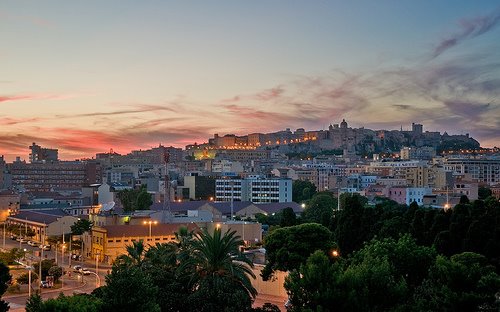

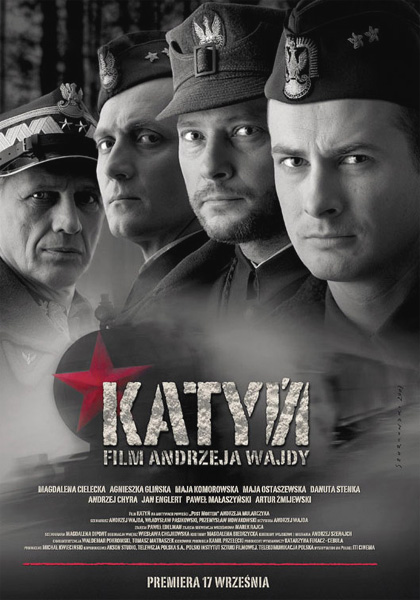
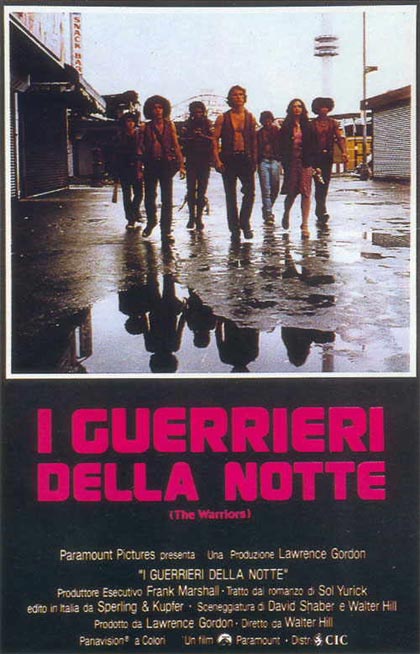



















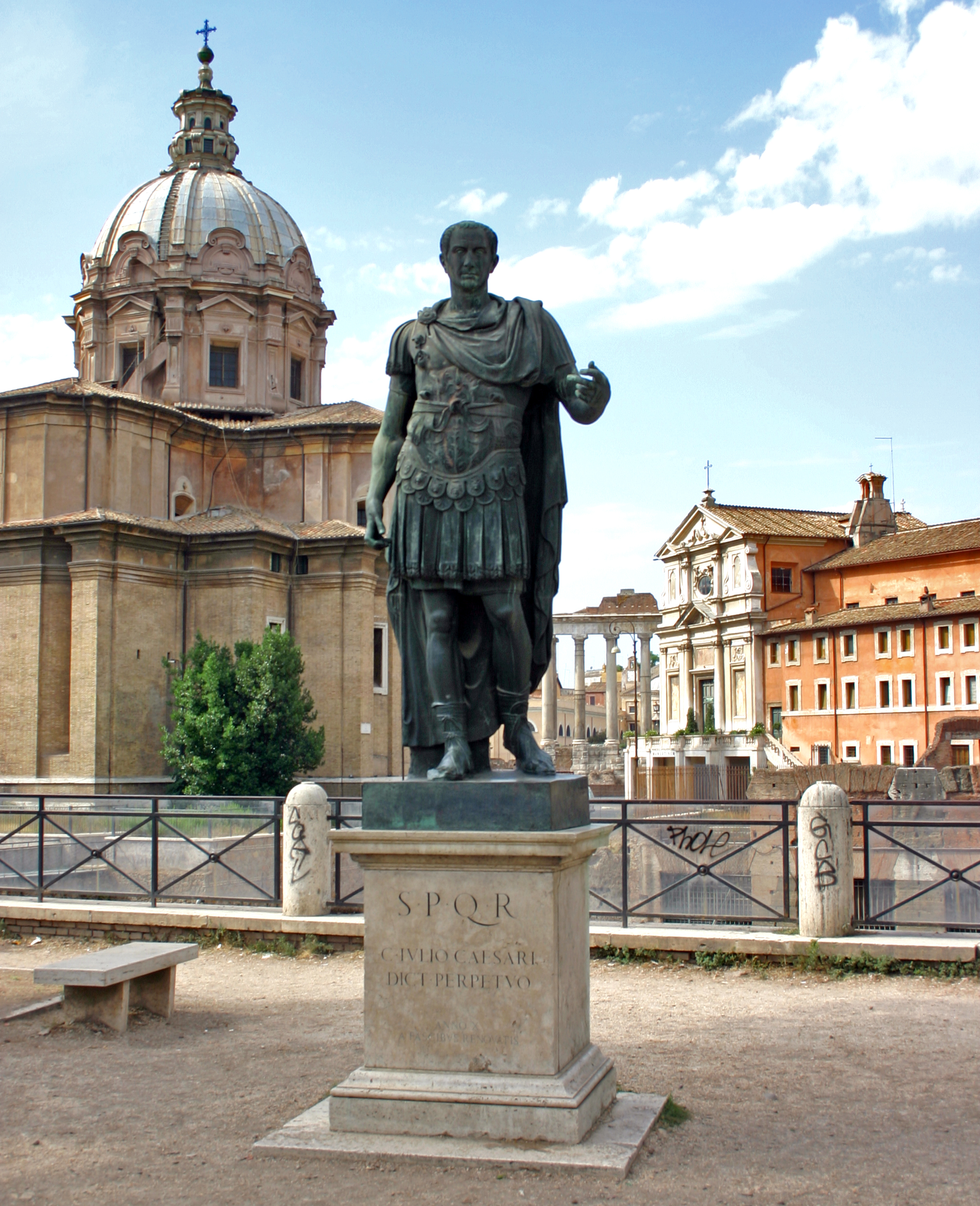
















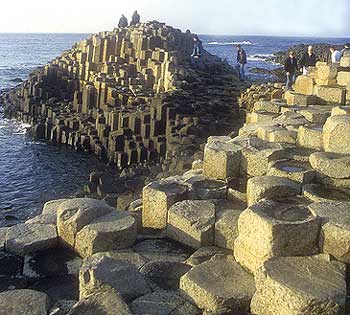















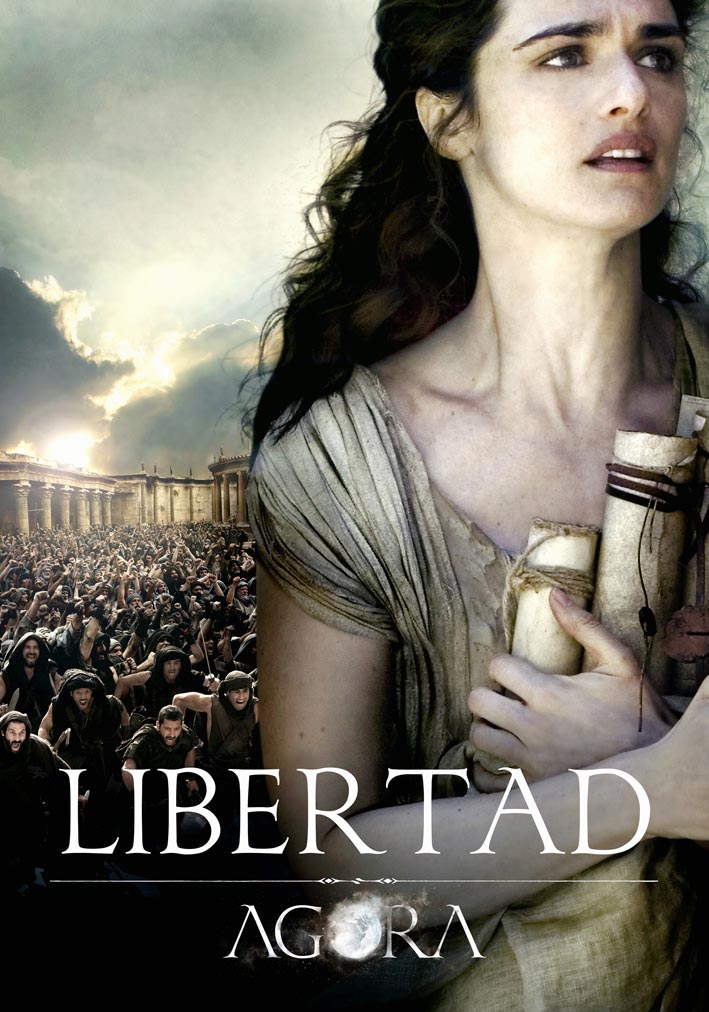




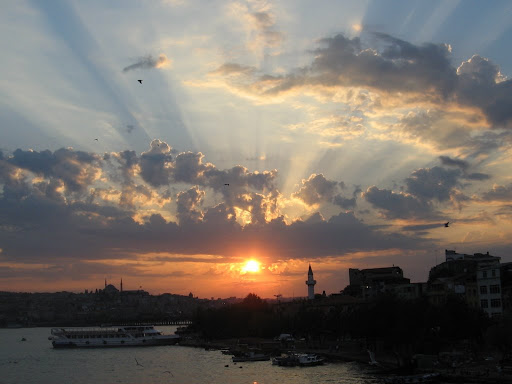






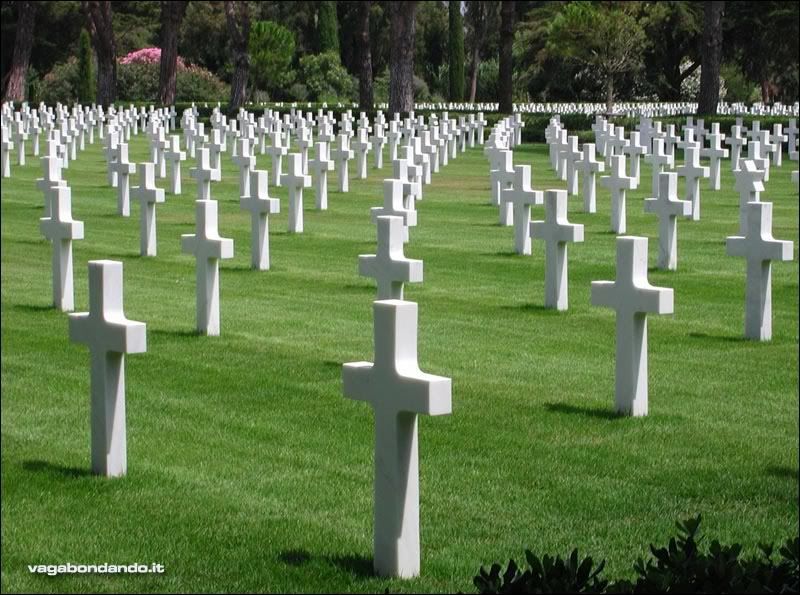











Nessun commento:
Posta un commento